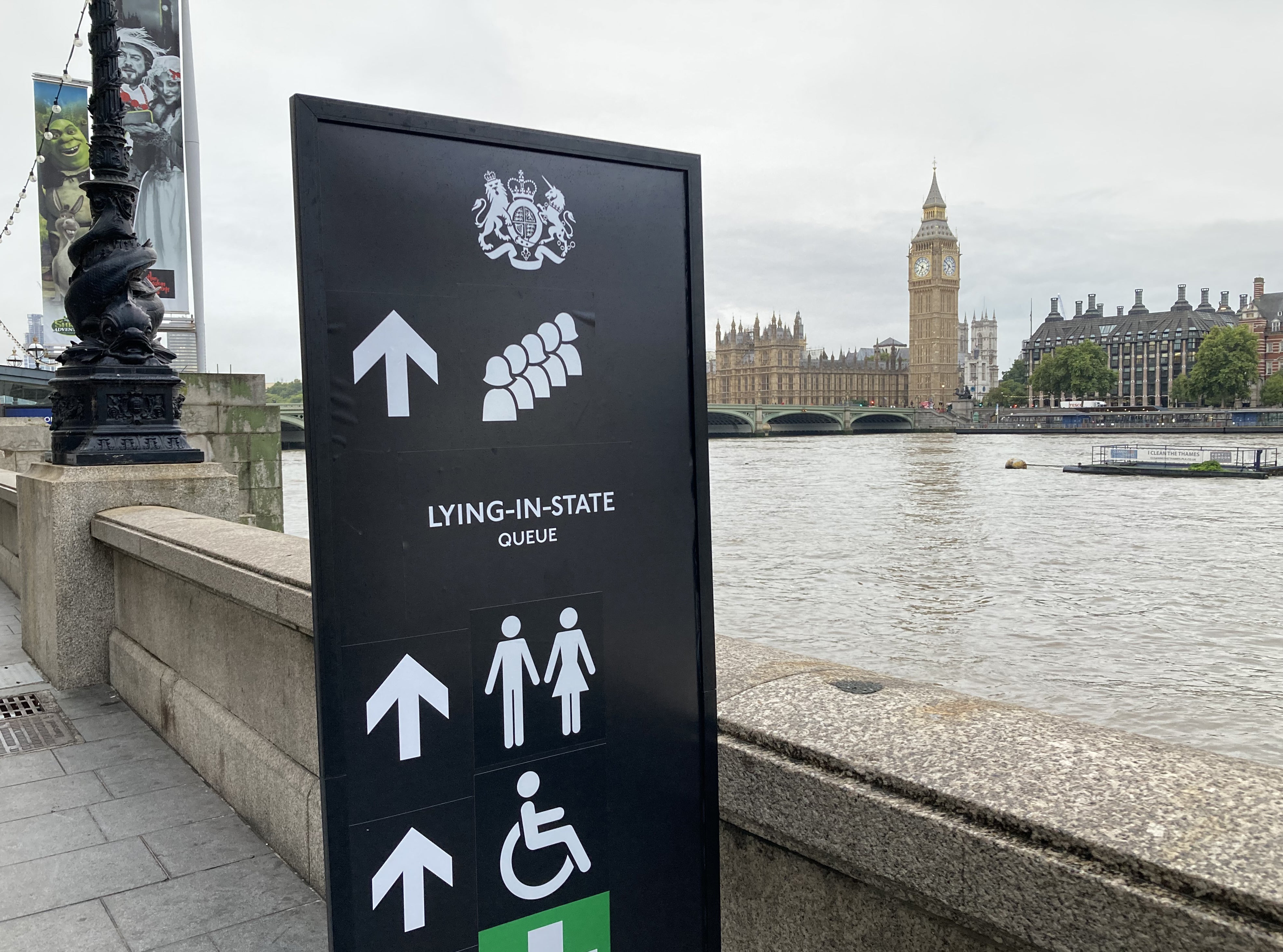Concerns that lying in state queue is ‘not accessible to disabled people’
A separate accessible queue is available for people unable to stand for long periods or those with specific needs.

Concerns have been raised that the queuing system enabling the public to view the Queen lying in state is “not accessible to disabled people”.
Disability Rights UK said it is disappointed that access to events following the death of the Queen is “such a mixed bag”, given the decades of planning that will have taken place.
The Government has said assistance dogs are permitted throughout the queue, there are accessible portable toilets, all marshals and volunteers have received disability awareness training and can signpost people to the nearest facilities, and there is step-free access along the whole route.
There is also a shorter, accessible queue running from Victoria Tower Gardens to the Palace of Westminster for people unable to stand for long periods or those with specific needs.
People needing to use this queue will first need to go to the accessible kiosk at Tate Britain – around half a mile away from the start of the accessible queue – to be issued with timed entry slots.
No proof of disability will be required to use the separate route, with marshals on hand to make sure people are in the correct line, and two British Sign Language interpreters and accessible toilets at the kiosk.
Marshalls and stewards will be told to proactively look out for anyone struggling, and take a pragmatic approach to assist them.
The Government did not say how long it estimates people in the accessible queue would have to wait.
Numbers for each time slot will be capped, therefore it is not guaranteed that everyone seeking a place in the accessible queue will be able to view the Queen lying in state, it added.
Disability Rights UK chief executive Kamran Mallick said: “We welcome the potential of shorter waiting time slots and a shorter distance to queue for disabled people, but there is still a breathtaking lack of awareness around the needs of disabled people.”
According to Government guidance, those queuing must not take food or drink inside the Palace of Westminster and such items will be confiscated.
The charity said there has been no confirmation that food and drink can be taken inside if visitors have a medical need.
Mr Mallick added: “This is a big concern as many people need these to take vital medication.”
It also pointed out that the bag drop point is on the other side of the River Thames, around 20 minutes’ walk away from the accessibility kiosk at Tate Britain.
It said there “would still be time” for the Government to introduce festival-style Changing Places toilets closer to the accessible route.
Currently, the nearest Changing Places toilets are in Victoria Station and Guy’s Hospital – which the charity said are “too far” away – or within the Palace of Westminster.
It is understood that there will be more than 1,000 volunteers, stewards, marshals and police officers on hand at any one time as people queue for the Queen’s lying in state.
There will be 779 professional stewards per shift, assisted by 100 civil service volunteer marshals, and hundreds of queue volunteers from organisations including the Red Cross, Scouts, Salvation Army, Samaritans and St John Ambulance.
There are more than 500 Portaloos along the route.
Bookmark popover
Removed from bookmarks